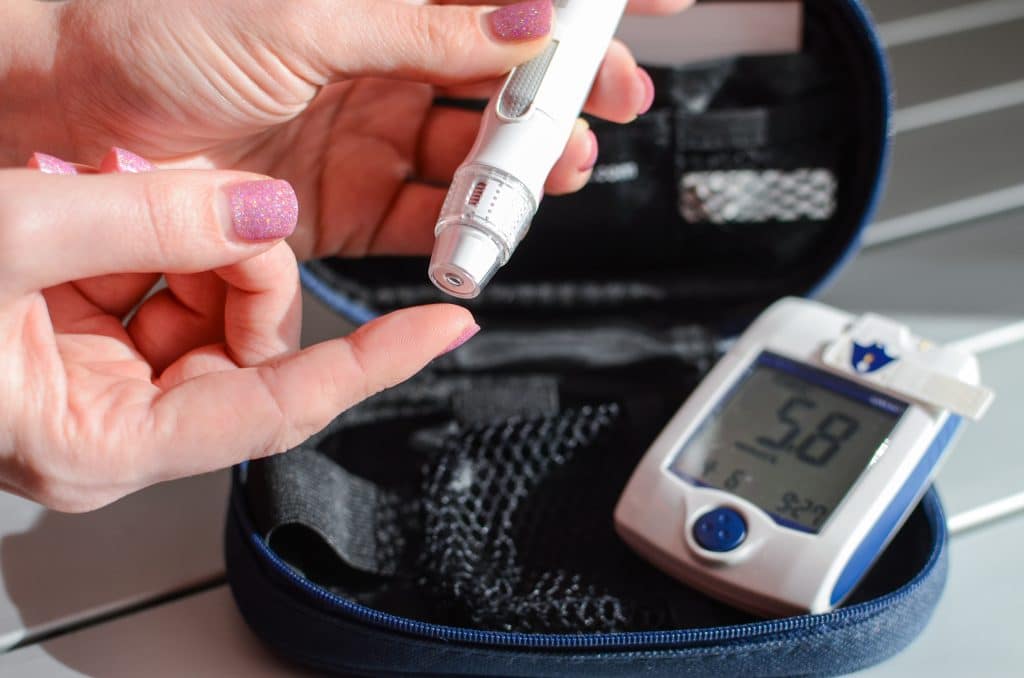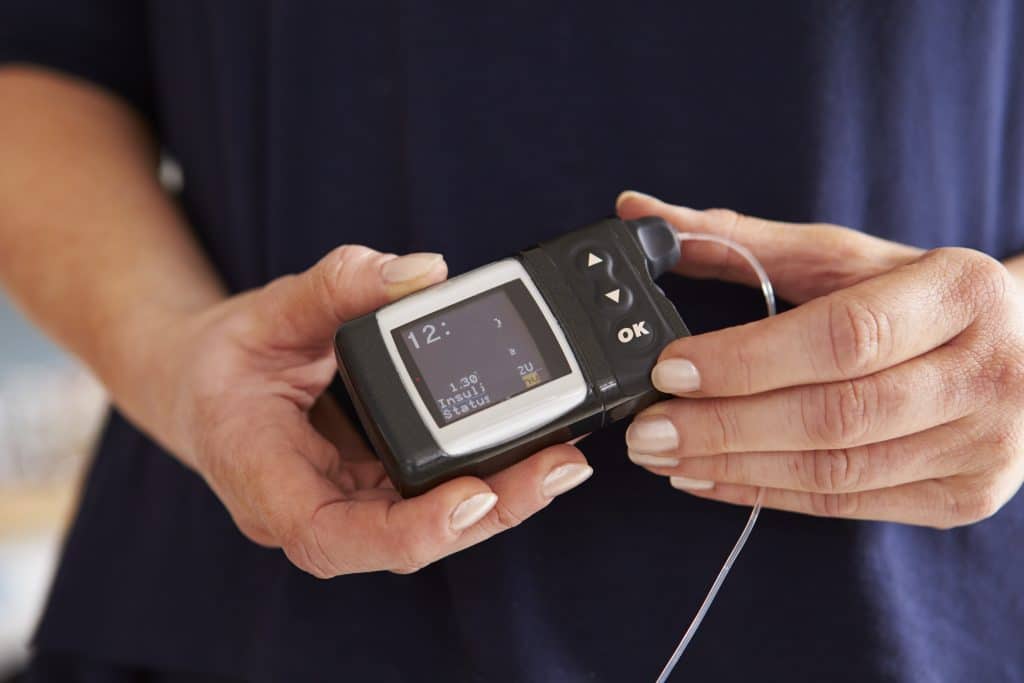If you or someone you know has diabetes, you’re probably familiar with the extra care and stress of living with an illness. Managing one’s health can be difficult, but when managing a chronic condition such as diabetes, additional education and vigilance are required to keep your body functioning optimally. This post will explore some of the best ways to prevent and manage diabetes—from dietary changes to lifestyle modifications—so that symptom management becomes more accessible and ultimately leads to better overall health outcomes.
Contents
- 1 How Diabetes Can Affect Your Daily Life
- 2 Methods To Prevent And Manage Diabetes
- 3 Maintain A Healthy Weight
- 4 Monitor Your Blood Sugar Levels
- 5 Take Medication As Prescribed
- 6 Quit Smoking
- 7 Manage Stress
- 8 Get Regular Check-Ups
- 9 Extra Tips For Preventing And Managing Diabetes
- 10 Take Steps To Prevent And Manage Diabetes
How Diabetes Can Affect Your Daily Life

Diabetes can considerably affect daily life, challenging even the most mundane tasks. Living with diabetes means constantly monitoring and managing blood sugar levels, from eating healthy foods to taking prescribed medications. This takes time away from daily activities and increases stress for individuals with diabetes.
While diabetes may sometimes feel overwhelming, it is important to remember that you are not alone in this fight. If their condition is not managed correctly, it can increase the risk of potentially serious complications such as blindness, neuropathy, heart attack, and stroke. There are treatments available for ordering the condition and plenty of support organizations that can provide resources and guidance for better living with diabetes.
Methods To Prevent And Manage Diabetes
Whether you have already been diagnosed with diabetes or are looking for ways to avoid it, there are a few steps you can take to help keep your body healthy and functioning properly. Here is a look at some of the best methods for preventing and managing diabetes:
Maintain A Healthy Weight

One of the best ways to prevent diabetes is to maintain a healthy weight. Being overweight or obese increases your risk of developing type 2 diabetes. When you carry extra weight, your body becomes less sensitive to insulin, which can lead to high blood sugar levels. Losing even a small amount of weight can help improve insulin sensitivity and lower your risk of developing diabetes.
To maintain a healthy weight, eating a balanced diet rich in fruits, vegetables, lean proteins, and whole grains is important. It’s also important to exercise regularly. Aim for at least 150 minutes of moderate-intensity exercise each week, such as brisk walking, cycling, or swimming.
Monitor Your Blood Sugar Levels

Monitoring your blood sugar levels is vital in preventing and managing diabetes. Periodic monitoring of blood sugar levels can reveal if you are taking the necessary steps to decrease your glucose levels or if lifestyle changes are required. For patients with diabetes, being aware of your current condition is important to ensure you’re properly managing your health.
Typically, you will want to check your blood sugar levels at least once daily, but discussing the frequency of testing with your healthcare professional is important. Your healthcare provider should check more frequently if you are experiencing frequent highs or lows in blood sugar levels.
Take Medication As Prescribed

If you have diabetes, your healthcare provider may prescribe medication to help manage your blood sugar levels. It’s important to take your medication as prescribed and to communicate with your healthcare provider if you experience any side effects or have trouble managing your blood sugar levels. Your healthcare provider may need to adjust or prescribe additional medication to help you manage your diabetes.
Several types of medications are used to manage diabetes, including insulin, oral medications, and non-insulin injectables. The medication prescribed will depend on the type of diabetes you have, as well as other factors such as your overall health and medical history. It’s important to understand how your medication works and to follow the instructions carefully.
Quit Smoking

Smoking is one of the major risk factors for diabetes and can make it harder to manage blood sugar levels if you already have diabetes. Nicotine and other chemicals in cigarettes can affect insulin sensitivity and increase the risk of complications such as heart disease and kidney failure. Quitting smoking can help improve your overall health and lower your risk of developing complications.
Quitting smoking can be challenging, but the benefits are worth it. Finding a method that works for you and seeking support from your healthcare provider, family, and friends is essential. If you need help, several resources are available to help you quit smoking, including nicotine replacement therapy, counseling, and support groups.
Manage Stress

Managing stress is another important part of living with diabetes. When managing your health and preventing the onset or worsening of diabetes, you must recognize that acknowledging your stress levels has a vital role. Pacing yourself daily and understanding how your emotions can impact the diabetes cycle is key.
Developing healthy coping mechanisms such as meditation or yoga, being mindful of eating habits, and committing to regular physical activity are all powerful tools to manage stress and help prevent or actively manage diabetes. By being conscious of your body’s reactions to stress and nourishing yourself with healthy habits, it’s possible to mitigate the effects of diabetes on your life.
Get Regular Check-Ups

Finally, regular check-ups with your healthcare provider are essential for diabetes prevention and management. Your healthcare provider can help monitor your health, track any changes in blood sugar levels, and advise on lifestyle modifications to maintain healthy levels. They can also assess the effectiveness of any medication or other treatments you may use to manage diabetes.
Regular appointments with your healthcare provider can help you stay on track and ensure that any changes in your health are detected early. This is especially important for those living with diabetes, as complications can be better managed if caught in their early stages.
Extra Tips For Preventing And Managing Diabetes

In addition to these strategies, some additional tips can help prevent and manage diabetes:
- Get enough sleep: Lack of sleep can affect your body’s ability to regulate blood sugar levels. Aim for 7-9 hours of sleep per night to help prevent diabetes.
- Stay hydrated: Drinking enough water can help regulate blood sugar levels and prevent dehydration, which can affect blood sugar levels.
- Limit alcohol intake: Alcohol can affect blood sugar levels and interfere with medication used to manage diabetes. Limit your alcohol intake to one drink per day for women and two for men.
- Stay informed: Keeping up-to-date with the latest research and guidelines on diabetes can help you make informed decisions about your health. Talk to your healthcare provider, read reputable sources, and consider joining a support group.
Take Steps To Prevent And Manage Diabetes
Living with this condition can be challenging, but it’s possible to prevent and manage diabetes by making lifestyle changes. With proper guidance and education, managing diabetes doesn’t have to be overwhelming. By understanding some of the different methods above and the role they play in your health and medical conditions, you can make strides in the right direction toward preventive and proactive management. Remember to stay informed and seek support from your healthcare provider, family, and friends as needed.


